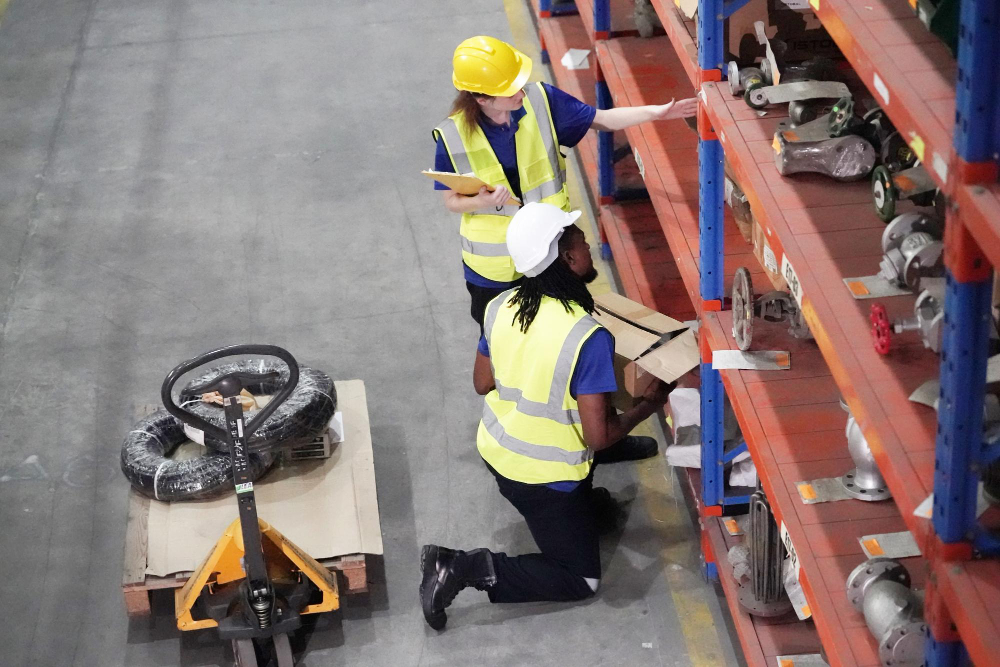


 149,200 Offered Certificates
149,200 Offered Certificates
 24/7 Online Training
24/7 Online Training
 Money Back Guarantee
Money Back Guarantee
 Fully Accredited Courses
Fully Accredited Courses

Created at: 2024-06-02 20:13:48
Small businesses face unique challenges when it comes to health and safety training. Limited resources and tight budgets can make it difficult to implement comprehensive safety programs. However, ensuring the health and safety of employees is just as critical for small businesses as it is for larger organizations. At Ireland Safety Training, we offer tailored training solutions to help small businesses create safe and compliant work environments.
The Importance of Health and Safety Training for Small Businesses
Legal Compliance Small businesses must comply with health and safety regulations to avoid legal penalties and ensure a safe workplace. Proper training helps employees understand and follow these regulations.
Protecting Employees Health and safety training educates employees on how to protect themselves and their colleagues from workplace hazards. This knowledge is crucial for preventing accidents and injuries.
Reducing Costs Preventing accidents through effective training can save small businesses money on medical expenses, compensation claims, and lost productivity. It also helps avoid fines for non-compliance.
Enhancing Reputation A strong commitment to health and safety can enhance a small business's reputation. Clients, customers, and potential employees are more likely to trust and engage with companies that prioritize safety.
Essential Tips for Implementing Health and Safety Training in Small Businesses
Assess Your Needs Conduct a thorough assessment of your workplace to identify potential hazards and training needs. This assessment will help you prioritize the most critical areas for training.
Develop a Training Plan Create a detailed training plan that outlines the topics to be covered, the methods to be used, and the schedule for training sessions. Ensure the plan is tailored to the specific needs of your business.
Leverage Online Resources Utilize online training resources and platforms to deliver cost-effective and flexible training. E-learning courses, webinars, and virtual workshops can provide valuable information without the need for expensive in-person sessions.
Focus on Practical Training Incorporate practical, hands-on training to ensure employees can apply what they learn in real-world situations. This might include demonstrations, drills, and role-playing scenarios.
Engage Employees Make training interactive and engaging to keep employees interested and motivated. Use quizzes, group discussions, and multimedia elements to enhance learning.
Provide Ongoing Training Health and safety training should be an ongoing process. Schedule regular refresher courses and updates to keep employees informed about new regulations and best practices.
Document Training Activities Keep detailed records of all training activities, including attendance, topics covered, and assessment results. Documentation is essential for demonstrating compliance and tracking progress.
Best Practices for Small Business Health and Safety Training
Start with the Basics Begin with fundamental health and safety topics, such as hazard identification, emergency procedures, and the proper use of personal protective equipment (PPE). These basics provide a solid foundation for more specialized training.
Tailor Training to Your Industry Ensure your training program addresses the specific risks and requirements of your industry. For example, a construction business will need different training than a retail store.
Involve All Levels of Staff Health and safety training should include employees at all levels, from front-line workers to management. Everyone plays a role in maintaining a safe work environment.
Encourage a Safety Culture Promote a culture of safety by encouraging employees to take an active role in identifying and addressing hazards. Regularly recognize and reward safe practices to reinforce positive behavior.
Use Technology Wisely Leverage technology to enhance your training program. Online platforms, mobile apps, and virtual reality simulations can provide flexible and engaging training options.
Our Training Solutions for Small Businesses
At Ireland Safety Training, we understand the unique needs of small businesses. Our tailored training solutions include:
Conclusion
Health and safety training is essential for small businesses to protect their employees, comply with regulations, and maintain a positive reputation. By assessing needs, developing a tailored training plan, and leveraging online resources, small businesses can implement effective and affordable safety programs. Ireland Safety Training is here to support you with customized training solutions designed specifically for small businesses. Contact us today at [email protected] or call us at 0894631967 to learn more about our offerings.